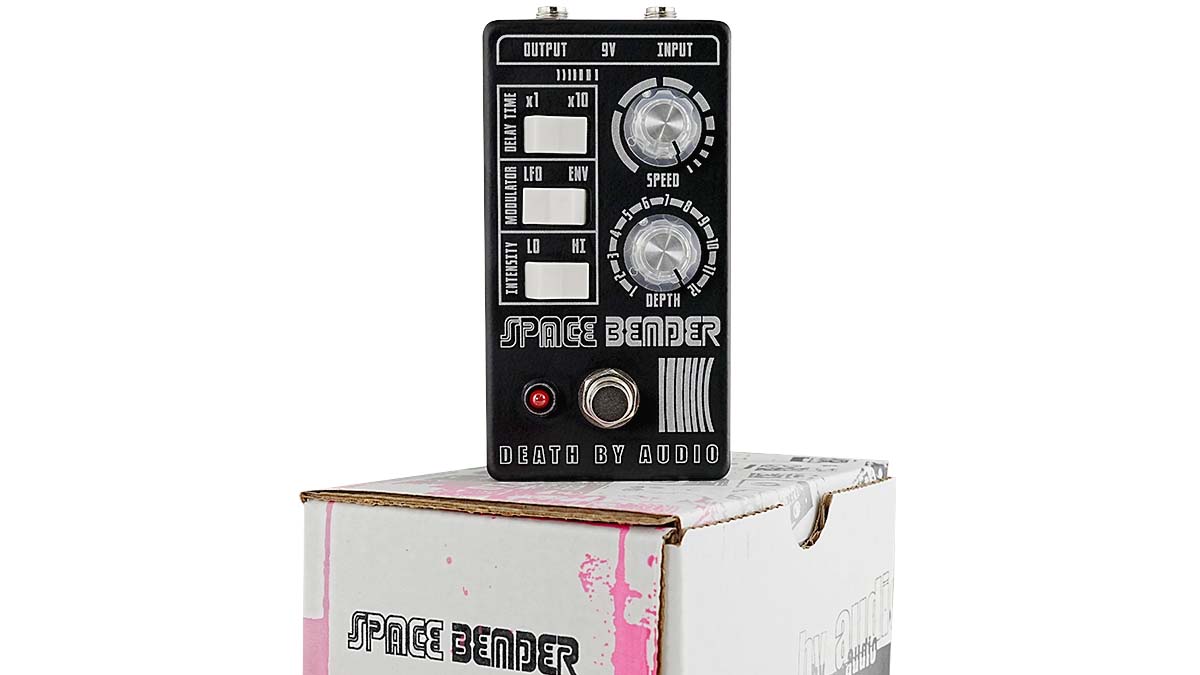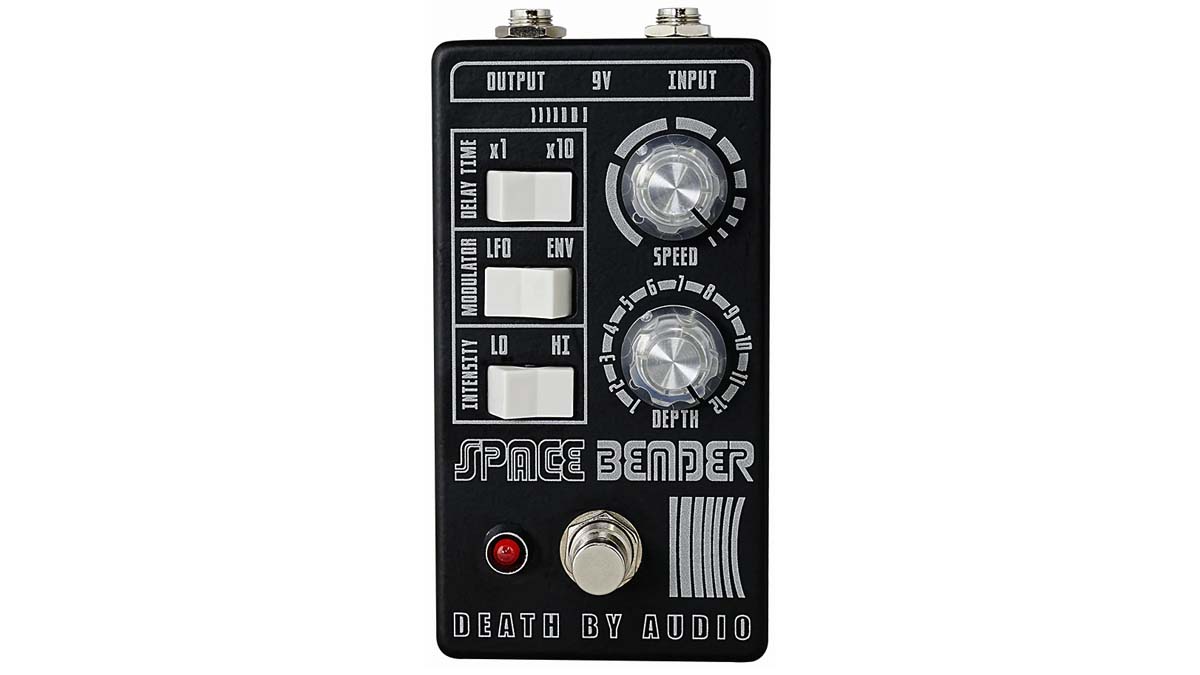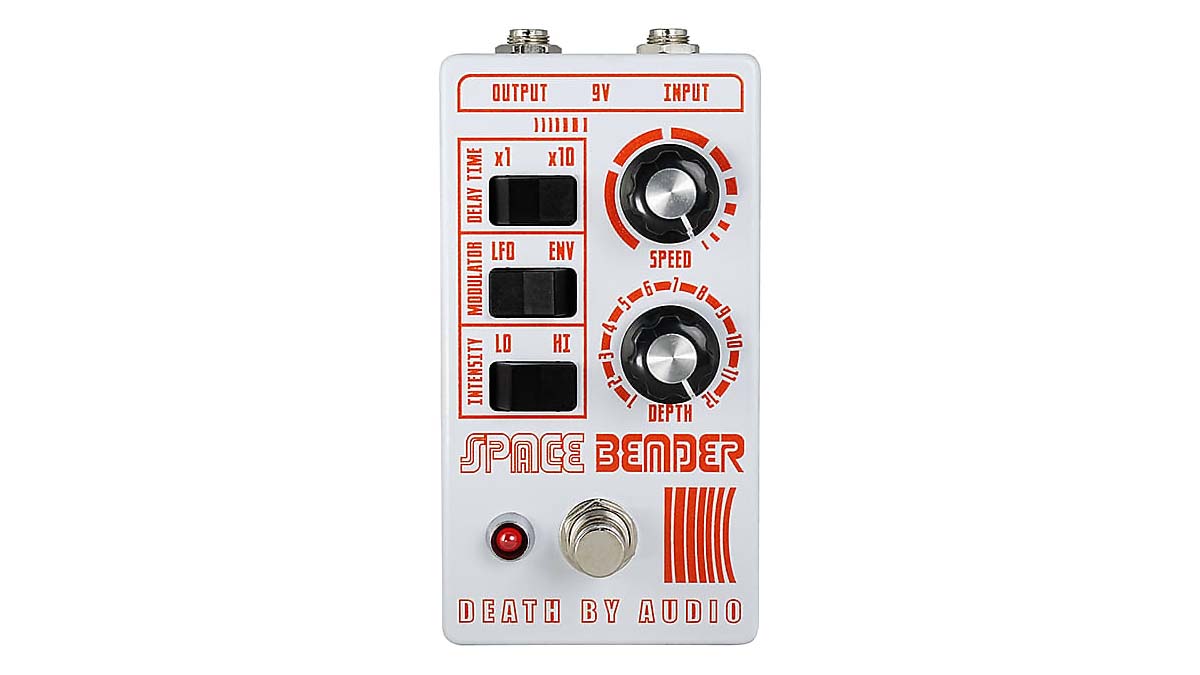Death By Audio’s Space Bender is a chorus modulator offering “vintage sci-fi sounds, bending sonic bedlam, and pulsing atmospheres”
The NYC-based effects pedal company promises no shortage of intensity with an effect designed for players looking to fall down the wormhole of modulated delay, chorus and flanger

Death By Audio has rolled out another stompbox for those occasions when you look at your pedalboard and feel a little heart sick because everything is just so vanilla. The Space Bender is a chorus modulator that, on evidence of the demos and Death By Audio’s description, is to chorus pedals what the rollercoaster is to rail travel.
“Under the hood lies an array of dynamically modulated delay lines allowing you to craft subtle vintage sci-fi sounds, bending sonic bedlam, and pulsing atmospheres,” says the brand. “Never again will you say this chorus pedal just isn't intense enough!” Well, quite. Either way, the Space Bender looks like a very different kind of modulation; you’d better buckle up.
Reassuringly it presents us with a relatively simple control layout, with two dials for Speed and Depth – controls that anyone with a passing acquaintance with chorus or modulation pedal should be on familiar ground.
But there is more than meets the eye. These controls are joined by a trio of rocker-style switches, and how they perform depends on where you set the switches. Altogether, there is plenty of space to explore.
The first of the rocker switches is for Delay Time, switching between very short (x1) or very long (x10). The second is the Modulator switch, and this sets the type of modulation for the delay line, choosing between a sine wave oscillator in LFO mode and Envelope mode.
Thirdly, there’s an intensity rocker switch that is described obliquely as controlling the overall intensity of the effects, with “oscillations, feedback and crazy noises” on the menu when engaged.
Death By Audio is hardly being over-prescriptive when it comes to these controls and what they do. That, perhaps, is the point. The Space Bender is the sort of pedal you turn on and fool around with, and when you find a sound you like, you'll do well to remember the settings.
Get The Pick Newsletter
All the latest guitar news, interviews, lessons, reviews, deals and more, direct to your inbox!
In LFO mode, with delays set short, and the intensity low, set Speed at two o’clock and Depth at one for an ethereal wash that pairs well with open chords. But this can be transformed with a flick of the intensity switch, which sounds very much like dialing up the feedback on a flanger. Here, the signal grows ever more sci-fi.


There are all kinds of sounds to be teased from this, from subtle modulated delay to a full-on stagger to the moon and slap-back again delay, and it's the kind of modulation that will stack well with some fuzz.
Death By Audio is offering this in a black-and-white enclosure and in a limited run of 200 white-and-orange units that are available exclusively through Reverb. The Space Bender has top-mounted jacks, takes a standard 9V DC pedalboard power supply and draws about 65mA of current.
It’ll cost you $270 and many a Saturday afternoon spent experimenting. For more details, head over to Death By Audio.
Jonathan Horsley has been writing about guitars since 2005, playing them since 1990, and regularly contributes to publications including Guitar World, MusicRadar and Total Guitar. He uses Jazz III nylon picks, 10s during the week, 9s at the weekend, and shamefully still struggles with rhythm figure one of Van Halen’s Panama.
“Jimi was staying at a hotel in Times Square. He had his hair set in pink curlers and we would just talk band drama”: Electro-Harmonix founder Mike Matthews on befriending Hendrix, booking Chuck Berry and the birth of pedal culture
“Our answer to everything players have asked for and more”: Neural DSP’s Nano Cortex had one major drawback – but now it’s been addressed with a huge free firmware update that takes on Kemper and TONEX










